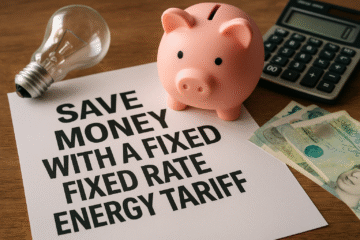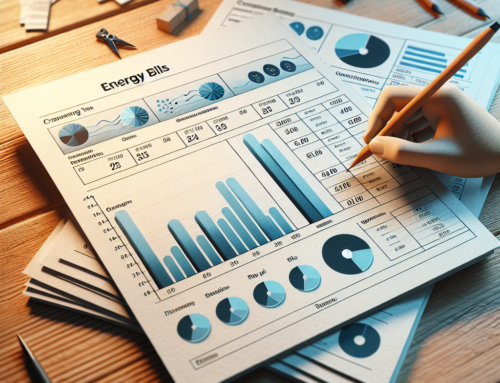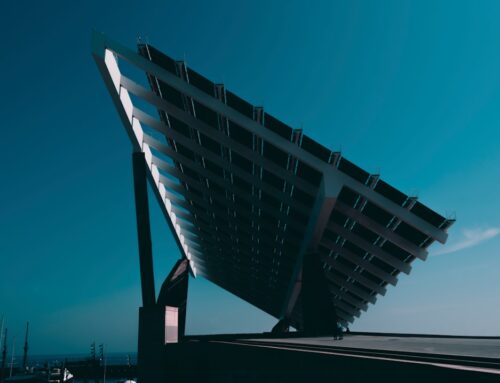Understanding your energy usage is the first step towards making your home more energy-efficient. By knowing how much energy you use and where it is being used, you can identify areas where you can make changes to reduce your consumption. Start by conducting an energy audit of your home to determine how much energy each appliance and system uses. This will help you identify which areas of your home are the biggest energy consumers and where you can make the most impact.
Once you have a clear understanding of your energy usage, you can start to make changes to reduce your consumption. This might involve making small changes, such as turning off lights and appliances when they are not in use, or larger changes, such as upgrading to energy-efficient appliances. By understanding your energy usage, you can take control of your consumption and make informed decisions about how to reduce it.
Implementing Energy-Saving Habits
Implementing energy-saving habits is an important part of making your home more energy-efficient. There are many simple changes you can make to reduce your energy consumption, such as turning off lights and appliances when they are not in use, using energy-efficient light bulbs, and adjusting your thermostat to reduce heating and cooling costs. By making these small changes, you can reduce your energy usage and save money on your energy bills.
In addition to making small changes, you can also make larger changes to reduce your energy consumption. For example, you can invest in a programmable thermostat to better control your heating and cooling costs, or install solar panels to generate your own renewable energy. By implementing energy-saving habits, you can reduce your environmental impact and save money on your energy bills.
Upgrading to Energy-Efficient Appliances
Upgrading to energy-efficient appliances is a great way to reduce your energy consumption and save money on your energy bills. Energy-efficient appliances use less energy to operate, which means they can help you reduce your overall energy usage. When shopping for new appliances, look for the Energy Star label, which indicates that the appliance meets strict energy efficiency guidelines set by the Environmental Protection Agency.
By upgrading to energy-efficient appliances, you can make a significant impact on your energy usage. For example, replacing an old refrigerator with a new Energy Star model can save you hundreds of pounds on your energy bills over the lifetime of the appliance. In addition to saving money, energy-efficient appliances also have a smaller environmental impact, making them a great choice for anyone looking to reduce their carbon footprint.
Insulating Your Home for Maximum Efficiency
Insulating your home is an important step towards making it more energy-efficient. Proper insulation can help keep your home warm in the winter and cool in the summer, reducing the need for heating and cooling systems and saving you money on your energy bills. Start by checking the insulation in your attic, walls, and floors to ensure that it is properly installed and in good condition.
In addition to checking existing insulation, you can also make improvements to further insulate your home. For example, you can add weather stripping around doors and windows to prevent drafts, or install double-glazed windows to improve insulation. By insulating your home for maximum efficiency, you can reduce your energy usage and create a more comfortable living environment.
Utilising Renewable Energy Sources
Utilising renewable energy sources is a great way to reduce your reliance on traditional energy sources and make your home more sustainable. There are many renewable energy options available, including solar panels, wind turbines, and geothermal systems. By generating your own renewable energy, you can reduce your environmental impact and save money on your energy bills.
In addition to generating your own renewable energy, you can also purchase renewable energy from a supplier. Many energy providers offer renewable energy options that allow you to support clean energy production without having to install renewable energy systems on your property. By utilising renewable energy sources, you can reduce your carbon footprint and contribute to a more sustainable future.
Taking Advantage of Government Incentives and Rebates
Many governments offer incentives and rebates to encourage homeowners to make their homes more energy-efficient. These incentives can help offset the cost of making energy-efficient upgrades, making it more affordable for homeowners to invest in sustainable improvements. For example, some governments offer tax credits for installing solar panels or upgrading to energy-efficient appliances.
In addition to government incentives, there are also rebates available from utility companies and other organisations. These rebates can help offset the cost of making energy-efficient upgrades, making it easier for homeowners to invest in sustainable improvements. By taking advantage of government incentives and rebates, you can make your home more energy-efficient without breaking the bank.
Monitoring and Managing Your Energy Usage with Smart Technology
Smart technology can help you monitor and manage your energy usage more effectively. There are many smart devices available that can help you track how much energy you are using and identify areas where you can make changes to reduce your consumption. For example, smart thermostats can help you better control your heating and cooling costs, while smart plugs can help you monitor how much energy individual appliances are using.
In addition to monitoring your energy usage, smart technology can also help you manage it more effectively. For example, some smart devices allow you to remotely control your appliances and systems, so you can turn them off when they are not in use or adjust their settings to reduce their energy consumption. By using smart technology to monitor and manage your energy usage, you can make informed decisions about how to reduce your consumption and save money on your energy bills.
In conclusion, making your home more energy-efficient is an important step towards reducing your environmental impact and saving money on your energy bills. By understanding your energy usage, implementing energy-saving habits, upgrading to energy-efficient appliances, insulating your home for maximum efficiency, utilising renewable energy sources, taking advantage of government incentives and rebates, and monitoring and managing your energy usage with smart technology, you can make a significant impact on your overall energy consumption. With a combination of small changes and larger upgrades, you can create a more sustainable living environment for yourself and future generations.





